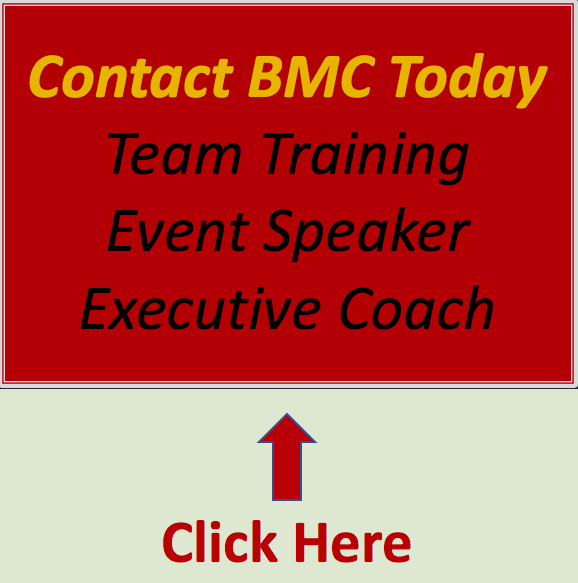Turn Conflict And Difficult Conversations Into Positive Experiences
/Employees are feeling disconnected and with many business engagements now taking place virtually these feelings are increasing and conflict is increasing. But lets take a moment to notice that not all conflict is bad - and look at when it does happen how can we manage it effectively.
I want to acknowledge the word ‘conflict’ has quite a broad definition. For this article I lean towards the definition from dictionary.com “verb: To come into collision or disagreement; be contradictory, at variance, or in opposition”
With this definition in mind, what do you think of the idea that conflict is not only natural, but that conflict and difficult conversations can be signs of a healthy relationship?
We often think of conflict and difficult conversations as bad; something to avoid. But should we? Sometimes conflict leads to something good. I’m sure we can all remember a moment of conflict that lead to new and exciting opportunities that enriched our lives by challenging us to meet new people and do new things. For example, when I worked in banking, I can remember a promotion I didn’t get (and yes, I was disappointed and disagreed with my bosses decision), but that loss motivated me to explore even greater – challenging opportunities I couldn’t have imagined. Instead of shutting me down for the rest of my career, it activated me. What I once considered as terrible news and negative conflict, I now describe as good a positive experience because it helped me change in ways I am very proud of.
Changing Our Approach:
What if we began thinking of conflict as an opportunity for two people to explore each others opposing viewpoints or expectations versus ‘a need to win a fight or prolonged battle’? What if we started thinking of conflict and difficult conversations as being something that can be a force of good that can challenge us (perhaps both of us), to become better individuals?
This is what I would like to discuss. So, lets explore how can we turn conflict and difficult conversations into positive experiences.
Start With Connection:
Whether we are delivering or receiving challenging news, start with honoring our connection and our relationship with the other person. Just because I don’t agree with you doesn’t mean I shouldn’t respect you. But, if I let our difference of opinion shut down my ability to connect with you and discuss / learn from you then we both lose before we even begin.
We may be an introvert or extrovert, but either way we all thrive for some level of connection; it is how we are wired – humans want to be connected. So, whenever you have a conversation, especially a difficult conversation, I encourage you to be sure to talk with your heart – tap into your empathy. Be aware of:
What are you feeling?
What do you feel they are feeling?
What are you needing?
What are they needing?
Safety and respect are two of our strongest needs. So, if you are going to tell someone they didn’t get the promotion, instead of thinking to yourself “I’m going to have a bad morning. I have to tell Joe he didn’t get the promotion,” start with the approach“I want to make sure Joe feels safe in my presence and respected by me and the company.”
Whether we are giving or getting bad news, when you and I feel safe we are more likely to stay calm and think through difficult situations. Making a connection helps us stay present and be able to discuss options. You and I also know that when the body feels fear it goes into protection mode – fight or flight. This means biology starts taking over as we feel the rush of adrenaline. When the body doesn’t feel safe it’s a bad time to try to have a difficult conversation – our body is looking to protect us and to deal with the fear verses think logically through a situation.
To have a difficult conversation make sure everyone feels safe. If you both are working in an office, choose a private space where the other person won’t feel vulnerable and both of you can speak clearly without interruption or distraction. If working remotely, do the same. Another good option to help people feel safe is to consider your timing. For example, share difficult news early in the day when everyone is less likely to be physically and emotionally exhausted from their day.
Practice Your First Sentence:
Using the example above, the idea is to continue making sure Joe feels safe and respected and to try to reinforce your connection.
Empathy is important here. One recommendation I have is that it is OK to talk about emotion but don’t be emotional (i.e.: stay calm, don’t raise your voice).
A good first sentence might sound something like the following: “Joe, I’m sorry I have to share you didn’t get the job. I can see that this is disappointing.” You may want to pause here and see what Joe has to say. Alternatively, you can continue with something like, “Joe, while we didn’t think this was the best fit for you, I want to reinforce you are a valuable member of the team and I am glad you chose to put your name forward. It shows us you want more for yourself with the company. What I would like to do is now or later this week (if you would choose to do it later), is for us to look closer at your goals for the future and how I can support you.”
Sure, Joe is still going to be disappointed. But, he is also likely going to feel safe, respected and supported. And, you should expect that Joe is still going to want to talk about why he didn’t get the promotion, but he is more likely to be open to the news and future possibilities with this more supportive approach.
The most important thing you must do is ‘be authentic’. As I suggested earlier, don’t make this about you or the company. The wrong approach is saying something like, “I have to tell you and two other candidates you didn’t get the job. This is the worst part of my job and I am sorry I have to do this. I didn’t sleep a wink last night because I feel so bad and if I could give you all the promotion I would, but I can’t.”
If Joe does get emotional because adrenaline kicked in, stay present and listen. If you stay calm it is likely Joe will calm down quickly… but if he doesn’t, take a break, invite Joe to stay in the room as you go get both of you a glass of water. If you need to take a break for a day or two, be sure to come back to the conversation. Stay open to what the other person is going through.
Conclusion:
Feelings of conflict mean that something is important to you and to others. If we didn’t care it would not be conflict or a difficult conversation. Let’s remember:
One of the best things we can know is to know we are being heard.
When people feel they are being heard they are going to be more open to compromise – or understanding. They will be more open to understanding ‘why’.
Lastly, we can do our best to set the stage for success, but in the end, we can only control ourselves. If the other person isn’t ready to have a difficult conversation, then there is nothing we can do – if we are trying to be kind and they only see hostility it is OK to know we are trying to do our best and that they may just need some time. Sometimes the best solution is to mindfully step away and return to the conversation a day or two later. Let’s just stay focused on what each of our goals are and what each of our needs are.
Life is messy. Let’s stay open and embrace it all.
Thank you for reading. I hope you have enjoyed exploring how to turn conflict and difficult conversations into positive experiences.
Bruce
About Bruce and Bruce Mayhew Consulting.
Bruce is Corporate Trainer and Executive Coach.
As a Corporate Trainer Bruce Mayhew (of BMC) specialize in customized Time Management Training, Email Etiquette Training, Leadership & New Leadership Development, Generational Differences and other soft skills training solutions in Toronto and across Canada. Bruce is also an Executive Coach to a few select clients.
BMC helps your greatest assets think productive and be productive.
Bruce is an experienced motivational speaker in Toronto and has inspired audiences across Canada and within the USA and the UK. Bruce works hard to always make sure your training event, conference, retreat, or annual general meeting is a success.




